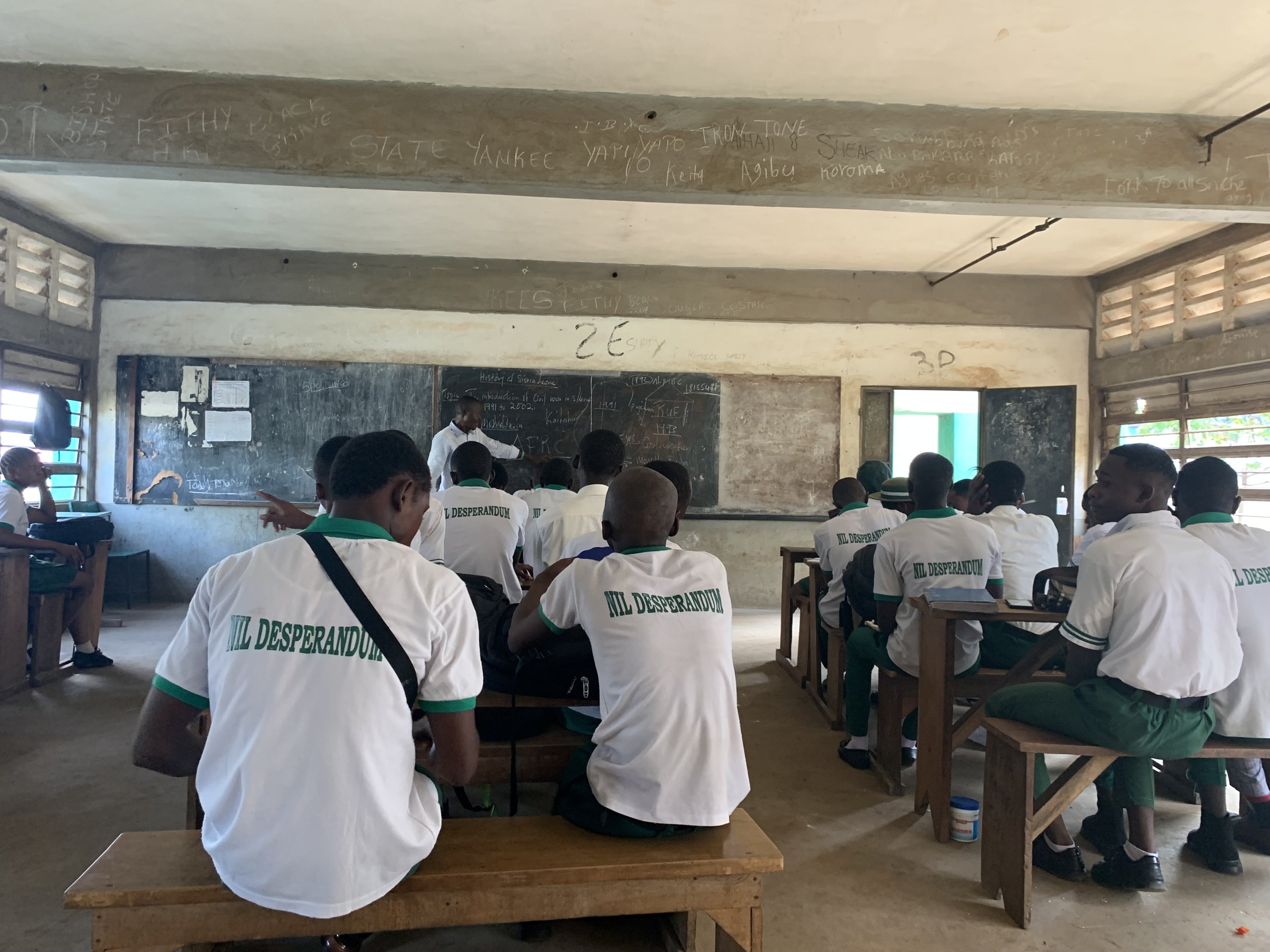
Research
Under what conditions do different forms or kinds of knowledge emerge?
My research agenda is motivated by this fundamental question in the Sociology of Knowledge, first articulated by Robert E. Park (1940). One of the core aims of my research agenda is to understand how knowledge about violence is constructed and disseminated intergenerationally. More specifically, my dissertation explores education about mass violence in Rwanda and Sierra Leone.
How does the naming of violence influence how those who experienced state violence narrate their country’s history?
Recent history and existing literature have demonstrated that when large-scale political violence occurs, the international community seeks to define and label the violence. The naming of these violent conflicts has many political and social ramifications; most noteworthy, the naming of violence as genocide, in contrast to civil war, commands an international responsibility to intervene under the Responsibility to Protect doctrine. Likewise, the labeling of violence has post-conflict consequences. My research agenda seeks to better understand these post-conflict consequences, investigating how the naming of violence influences the construction of victim and perpetrator identities.
Dissertation to Book Project
My research seeks to understand how societies that recently experienced large-scale political violence teach about this violence to the next generation. I examine how parents and secondary school history teachers educate youth about their nation’s history of violence.
Specifically, I ask: how do narratives put forth by transitional justice mechanisms affect national history curricula, and how do educators and parents in Sierra Leone and Rwanda relay their respective country’s history of civil war and genocide, respectively, to the next generation?
To address these questions, I draw upon 15 months of field research in Kigali, Rwanda, and Freetown, Sierra Leone, where I conducted 197 interviews with parents, teachers, and education experts; participant observation of history and social studies classrooms; and content analysis of state-sponsored curricula and textbooks.
In short, my dissertation shows that transitional justice mechanisms, mediated by the state, set the parameters within which teachers and parents educate youth about the Rwandan Genocide and Sierra Leonean Civil War. Yet these transitional justice mechanisms and states do not determine this transmission of national memory. As part of a broader educational system, individuals adapt and transmit existing national histories and their own experiences of violence when educating the next generation.
Here, collective memory and educational literature meet, addressing how narratives generated by legal proceedings, human rights institutions, and educational policymakers contribute to the collective memory of past violations. My project offers a methodological intervention through participant observation of classrooms and educator interviews, examining how the teaching of mass violence unfolds in practice beyond written curricula and texts.